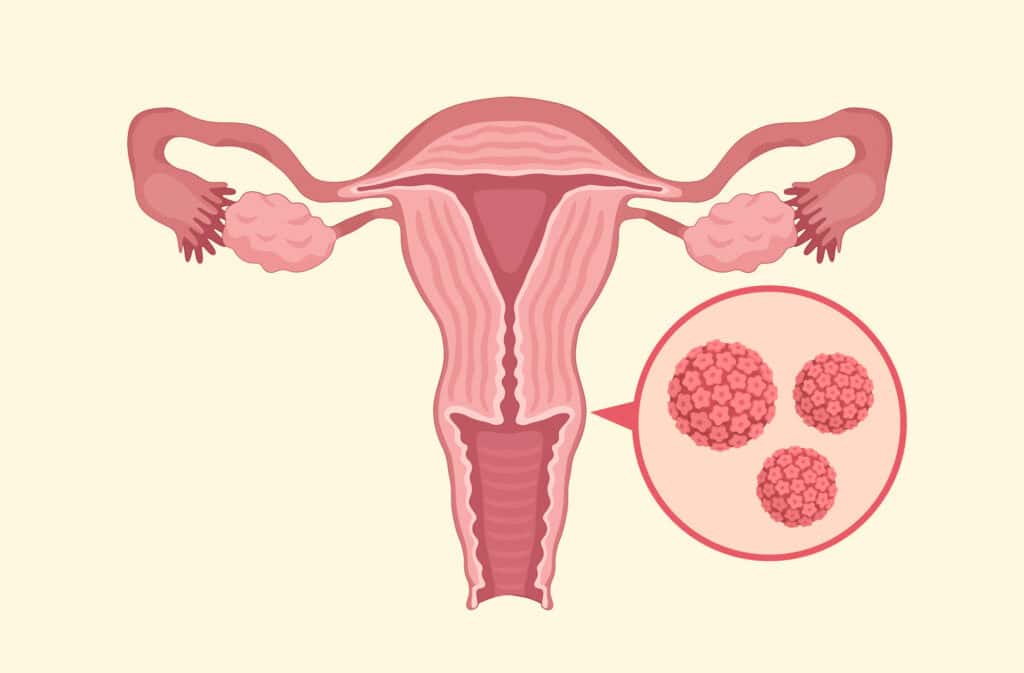Femia > Health Library > Pregnancy > Pregnancy health > Cryptic pregnancy symptoms: Could you be pregnant and not know it?
Cryptic pregnancy symptoms: Could you be pregnant and not know it?

- Updated Feb 10, 2025
- Published
CRAFTED BY HUMAN
Crafted by human At Femia, we provide accurate and up-to-date information at every stage of your journey, from trying to conceive, pregnancy and postnatal support. All content is created by a real person based on in-depth research and own professional experience. Femia ensures that you will receive expert advice, strict accuracy and a personalized approach from our authors/medical experts. Learn more about our editorial policy.
FACT CHECKED
Fact checked At Femia Health, we maintain the highest standards of editorial excellence in delivering content focused on helping you conceive, guiding you through pregnancy, and supporting you postpartum. Explore our content review principles to learn how we ensure the accuracy and quality of our health and lifestyle tips for every stage of your journey.
- A cryptic pregnancy occurs when a person doesn’t realize they’re pregnant, often due to mild or absent symptoms.
- It’s rare but possible, affecting about 1 in 475 pregnancies until 20 weeks, and 1 in 2,500 until delivery.
- Risk factors include being on birth control, perimenopause, hormonal imbalances, recent childbirth, or lack of pregnancy experience.
To many women, the whole concept of a cryptic pregnancy might sound odd, often because their own experience with pregnancy symptoms was hard to ignore. So, it’s natural to wonder, how can you be pregnant and not know? Yet, the truth is that it’s rare but possible.
of pregnancy development?
Femia decodes your body’s signals and helps you track progress effortlessly
What is a cryptic pregnancy?
A cryptic pregnancy is also called a stealth or hidden pregnancy. It’s a universal term used to define cases when a pregnant person doesn’t realize they’re pregnant.
It may occur due to multiple reasons:
- You don’t experience pregnancy symptoms or experience them too mildly to tell you’re pregnant. It’s not uncommon to have few to no early pregnancy symptoms. In this case, the only notable sign might be a missed period, which might not trigger you if you’re used to irregular periods.
- You mistake pregnancy symptoms for a virus or another health condition.
- You get a false negative test result and believe you’re not pregnant.
- You simply aren’t aware of common pregnancy symptoms and don’t identify your own pregnancy early enough.
Regardless of the reason, the main idea is that during a hidden pregnancy, nothing triggers you to realize you’re pregnant. Typically, the fact of pregnancy becomes known somewhere between weeks 4–12 when symptoms become more prominent and a bump starts growing. However, in some rare cases, a person may not know about their pregnancy until a very late week or even until labor begins.
How common are cryptic pregnancies?
Studies show that about 1 in 475 pregnancies are hidden and go unnoticed until about 20 weeks, with 1 in 2,500 pregnancies going unnoticed until delivery.
One factor contributing to hidden pregnancies can be hormonal imbalances that lead to unstable periods and make you misinterpret your pregnancy-caused missed period. Ongoing stress or depression might be another contributing factor. Excessive psychological distress is proven to affect your hormone levels, which might disrupt pregnancy symptoms and result in a cryptic pregnancy.
As for body changes that take place in early pregnancy weeks, in some cases, they might be less prominent. Torso length, height, pre-pregnancy body weight, and baby positioning affect the size of the bump, making some women have barely visible baby bumps that are easy to misinterpret.
👉Find out more: What are the odds? Understanding the chances of pregnancy after unprotected sex one time
Who is at risk for a cryptic pregnancy?
Though this phenomenon is rare, anyone can experience a hidden pregnancy. Here are some factors that might signal that you’re at higher risk for being pregnant without knowing it:
- You’re on birth control. Oral birth control can give you confidence in your full protection from conception, which is misleading. Despite birth control efficiency, there is still a small chance of pregnancy even if you use them right. A study of cryptic pregnancies revealed that 75% of reviewed pregnancies took place despite using contraception.
- You’re in perimenopause. Perimenopausal women tend to believe they can’t get pregnant anymore, which can lead to pregnancy denial and misinterpretation of early symptoms.
- You have hormonal imbalances or conditions like polycystic ovary syndrome (PCOS). Hormonal imbalances frequently lead to cycle irregularities. They can result from such conditions as PCOS, pelvic inflammatory disease, thyroid or pituitary gland disorders, and even excessive stress. These imbalances and irregular periods can make you miss one of the main early pregnancy symptoms: missed periods.
- You recently had a baby. It can take several months for your cycle to come back after giving birth. Besides, you may not ovulate while breastfeeding. These two facts can give you the impression that you can’t get pregnant again this soon. The truth is that it’s hard to predict when you’ll start ovulating again after giving birth, which can lead to a hidden pregnancy.
- You haven’t been pregnant before. Cryptic pregnancies can also happen to women who have never been pregnant before and thus, don’t know what to expect from it. A lack of knowledge about pregnancy and its early signs can make it easy to misinterpret your condition.
Can you prevent cryptic pregnancy?
Cryptic pregnancies, albeit rare, can happen to anyone. The best way to prevent them is to boost your own awareness about your body, sexual health, and common early pregnancy signs. This knowledge can help you be more attentive to your body and its changes and prevent misinterpreting any changes that happen to you.
Cryptic pregnancy symptoms
Cryptic pregnancies are like regular pregnancies, just undetected, which is why the symptoms are basically the same. The only difference is that in a hidden pregnancy, a person might not realize they’re pregnant or deny this fact due to different reasons.
To prevent misinterpretation, here are the main signs of cryptic pregnancy you should look out for:
- Irregular or continued periods. Sometimes, you may not notice a missed period during early weeks of pregnancy. Instead, you may experience irregular or continued periods, which might look habitual if you have hormonal disbalances.
- Mild symptoms that are mistaken for other conditions. Common pregnancy symptoms include nausea, vomiting, fatigue, frequent urination, mood swings, etc. If these symptoms appear very mild, it can be easy to mistake them for overall poor well-being, illness, or other health conditions.
- Little or no weight gain. Although weight gain and belly growth are natural during pregnancy, notable changes often don’t begin until later, which makes it easy to not notice any (or notice very minor) weight gain during the first weeks of gestation. Studies show that there is often less change in weight and breast size in the hidden pregnancies.
Is it possible to still have your periods during a cryptic pregnancy?
When you’re pregnant, your cycle changes due to changing hormone levels, and menstruation stops. However, some females may experience bleeding that can make them believe they’re not pregnant.
This “cryptic pregnancy period” can be explained by the fact that bleeding isn’t uncommon during early pregnancy. However, it’s not due to the menstrual cycle but other reasons—for example, implantation bleeding.
Can you be pregnant with no symptoms except a missed period?
Only having a missed period without other known pregnancy symptoms can feel misleading and frustrating.
However, though it’s not very common, some females may not experience any pregnancy symptoms at all. Others may experience cryptic pregnancy symptoms very mildly and attribute these changes to hormonal fluctuations or stress.
Will a cryptic pregnancy show on a pregnancy test?
Over-the-counter pregnancy tests are made to react to the human chorionic gonadotropin (hCG) hormone. The body starts producing this hormone around six days after fertilization, and the levels of hCG continue growing until they peak at around 10 weeks of pregnancy.
In a cryptic pregnancy, your body produces hCG as it would during a regular pregnancy. That is, a home pregnancy test should detect it.
Is it possible that you’ll test negative if you’re pregnant? The likelihood of a false negative test is less than 1%. In most cases, a negative result in pregnancy occurs if you use the test incorrectly or use it too early, when hCG levels aren’t high enough to be detected.
To avoid a false negative, carefully follow the manufacturer’s instructions, and consider taking multiple tests if you have any doubts.
👉Find out more: Positive pregnancy test but no baby on ultrasound: What could it mean?
When to seek medical attention
Depending on how long it lasts, a hidden pregnancy can prevent you from seeking the needed prenatal care and support. In the long run, this can lead to a number of complications, including small fetal size, preterm birth, and others.
Due to potential risks, it’s crucial to consult your healthcare provider even if there is a slight suspicion of a pregnancy, regardless of whether you have any tangible symptoms or not.
How is it diagnosed?
Some signs of cryptic pregnancy or home test results might help you detect a hidden pregnancy at the early stage. However, if you want to confirm or refute your pregnancy with 100% accuracy, it can be a good idea to see a healthcare provider. A healthcare specialist will diagnose a cryptic pregnancy like a regular one.
The primary diagnosis methods include:
- Ultrasound;
- Blood test;
- Urine test.
How is a cryptic pregnancy treated?
Depending on the time when you realize you’re pregnant, your healthcare provider might suggest different procedures and treatments to catch up with the missed prenatal care.
You might need to catch up by:
- Completing blood and urine tests;
- Having ultrasound screenings;
- Measuring fundal height;
- Having a physical exam;
- Addressing existing health conditions;
- Implementing nutritional supplementation and lifestyle changes.
Femia offers personalized insights on early pregnancy signs
Questions from the Femia community
Can stress cause a cryptic pregnancy?
Yes. Ongoing stress exposure increases cortisol levels in your body, causing mood swings, weight gain, low libido, and irregular periods. Excessive stress can also interfere with other hormones in your body, including progesterone and estrogen, further exacerbating the aforementioned issues, which can make it harder to detect pregnancy.
Can I have a cryptic pregnancy while using birth control?
Yes, it’s possible. Although birth control is supposed to prevent pregnancy, there is always a small likelihood of error. Hence, some women on birth control can still experience a cryptic pregnancy, especially if they don’t take their contraceptives correctly or if their birth control fails.
How long can a cryptic pregnancy go undetected?
Most females realize they’re pregnant about 20 weeks after conception, when there are tangible body changes. However, in rare cases, women can remain unaware of their pregnancy for the entire gestational period and only learn they’re pregnant when labor begins.
The bottom line
Cryptic pregnancies aren’t very common, But they happen and can last up to the labor time.
No matter if a hidden pregnancy lasts for 40 weeks or as short as 10 weeks, it can make you miss out on crucial prenatal care that helps ensure optimal maternal and fetal health and minimize the risks of complications. With this in mind, it’s important to seek medical advice if you have any suspicion of pregnancy, even if your symptoms are mild or absent.
References
- “Cryptic Pregnancy.” Cleveland Clinic, 8. Nov. 2022. https://my.clevelandclinic.org/health/diseases/24428-cryptic-pregnancy.
- “Am I Pregnant?” Cleveland Clinic, 26, Jul. 2022. https://my.clevelandclinic.org/health/articles/9709-pregnancy-am-i-pregnant.
- Chechko N, Losse E, Stickel S. “A case report involving the experience of pervasive pregnancy denial: detailed observation of the first 12 postpartum weeks.” BMC Psychiatry, 9, Dec. 2022. https://www.ncbi.nlm.nih.gov/pmc/articles/PMC9732985/.
- Duckitt K. “Cryptic pregnancy.” Case Rep Womens Health, 2, Apr. 2023. https://www.ncbi.nlm.nih.gov/pmc/articles/PMC10334309/.
- “Irregular Periods.” Cleveland Clinic, 18, Jan. 2023. https://my.clevelandclinic.org/health/diseases/14633-abnormal-menstruation-periods.
- Donna Freeborn, Heather M Trevino, Irina Burd. “Bleeding During Early Pregnancy.” Nationwide Children’s, 1, Jan. 2022. https://www.nationwidechildrens.org/family-resources-education/family-resources-library/bleeding-during-early-pregnancy.
- “Human Chorionic Gonadotropin.” Cleveland Clinic, 11, Mar. 2022. https://my.clevelandclinic.org/health/articles/22489-human-chorionic-gonadotropin.
- Jens Wessel, Annett Gauruder-Burmester, Christoph Gerlinger. “Denial of pregnancy – characteristics of women at risk.” Obstetrics and Gynecology, 31, Dec. 2010. https://obgyn.onlinelibrary.wiley.com/doi/full/10.1080/00016340601159199.

Many wonder, is it safe to dye your hair while pregnant? You can take precautions to protect yourself and your developing baby from chemical exposure.

Did you know what the two-week wait (tww) is? Discover two-week wait symptoms day by day, what to expect and avoid during tww, tww meaning in pregnancy, and more.

Can HPV cause infertility? Discover the impact of HPV on fertility and pregnancy outcomes in detail and the measures to prevent HPV from the mother to the baby.

